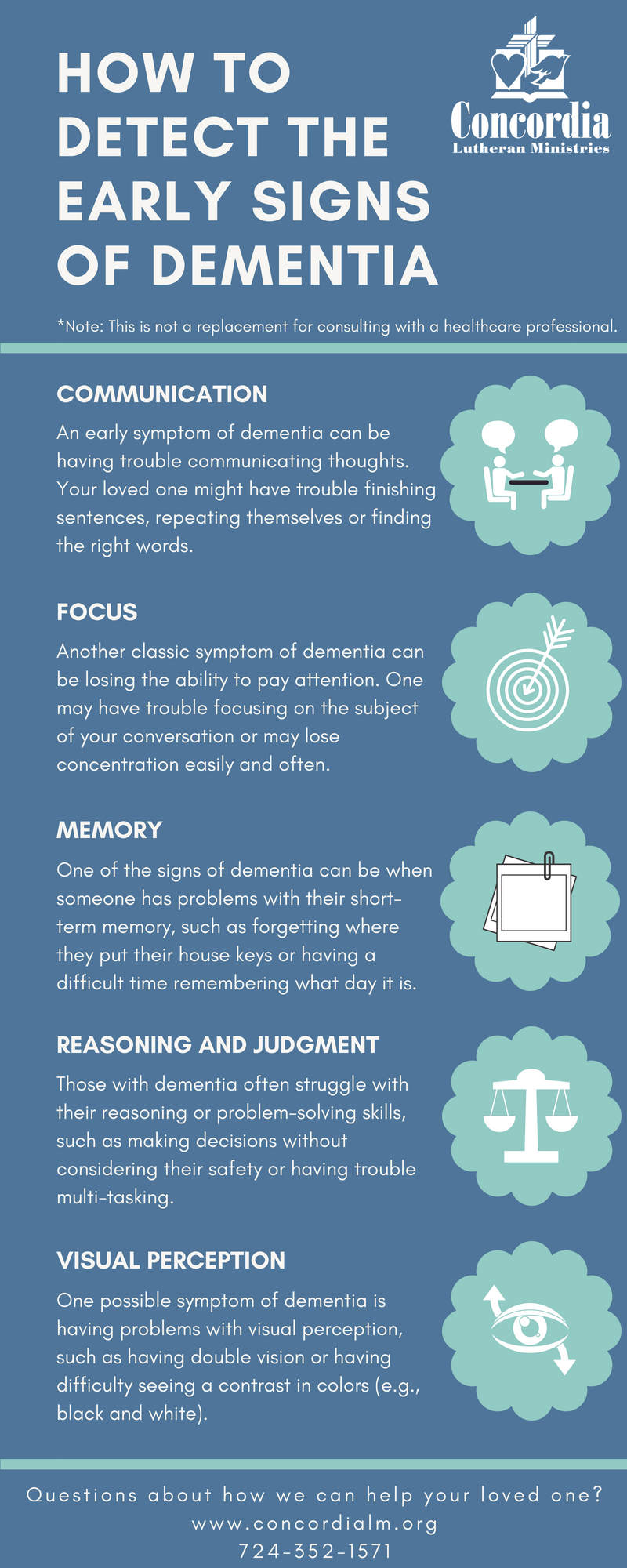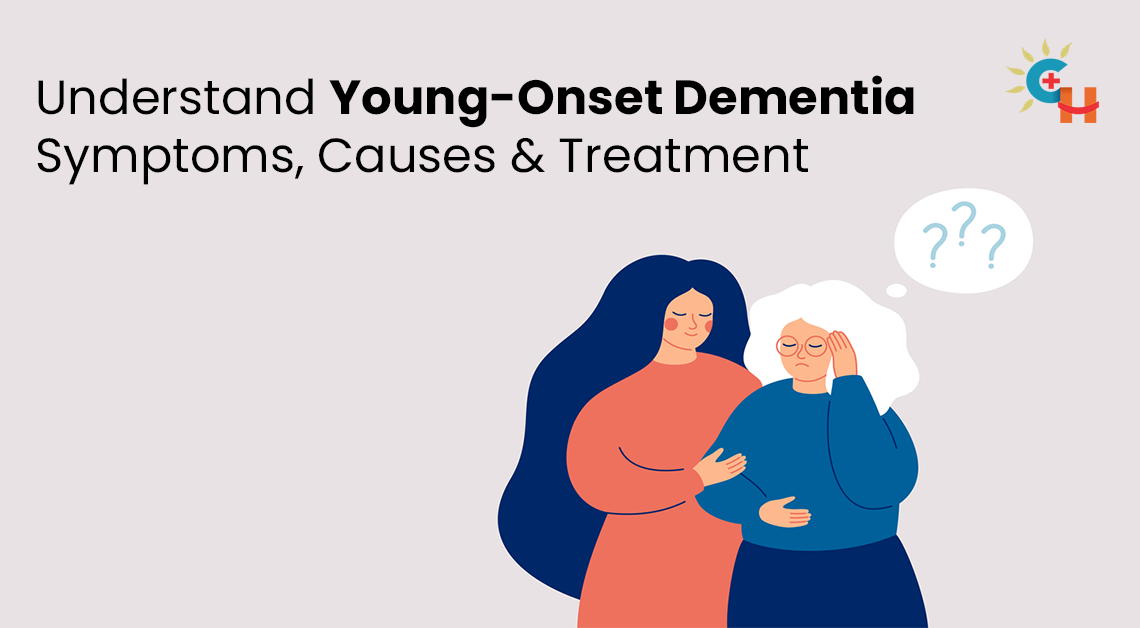The Relevance of Early Detection and Medical Diagnosis in Dementia Cases
When it concerns dementia, identifying the signs early can make a significant distinction. You might wonder exactly how prompt treatments can transform the training course of the condition. Early discovery not just opens up therapy alternatives yet additionally enhances the high quality of life for individuals and their households. Comprehending the subtleties of mental deterioration can aid you identify signs faster. What should you know regarding the steps to take when a diagnosis is made?
Recognizing Mental Deterioration: Types and Signs

If you see these indicators in yourself or a liked one, don't wait to seek help. Early acknowledgment of mental deterioration symptoms can considerably boost the total administration of the problem, making it crucial to remain notified.
The Influence of Very Early Medical Diagnosis on Therapy Choices
Acknowledging the indications of dementia early on can noticeably affect the treatment options offered. You open the door to a variety of treatments that can slow down the condition's development when you look for a diagnosis quickly. For example, drugs designed to take care of signs and symptoms are most reliable in the earlier phases. You'll likewise have better access to medical tests, which might offer sophisticated treatments that aren't offered later in the condition.
Furthermore, early diagnosis permits you to explore non-pharmaceutical methods, such as cognitive treatments and way of living adjustments, that can boost cognitive feature. You'll have the possibility to produce a customized treatment strategy that resolves your details requirements and preferences. This aggressive technique not just equips you but likewise helps in taking care of possible coexisting conditions. Bear in mind, the quicker you act, the extra choices you'll have to keep your quality of life and freedom for as long as possible.
How Very Early Detection Can Boost Top Quality of Life
Very early discovery of dementia not only opens up treatment options but likewise greatly improves your lifestyle. When you recognize symptoms early, you can start to handle them successfully, enabling you to maintain a feeling of self-reliance and control over your daily tasks. Early diagnosis implies you can access therapies and lifestyle changes customized to your demands, aiding you handle obstacles in an extra structured method.
Furthermore, comprehending your condition encourages you to make educated choices regarding your future. You can prepare for the modifications in advance, guaranteeing that your individual goals and choices are focused on. This aggressive method fosters a complacency, decreasing anxiety for both you and your liked ones.
Furthermore, participating in very early interventions might boost your cognitive function and psychological well-being, allowing you to enjoy meaningful links and experiences. Simply put, early detection isn't nearly managing symptoms; it has to do with enriching your life.
The Function of Family and Caregivers in Very Early Recognition

By sharing your problems, you aid initiate very early evaluations, which can bring about timely diagnosis and treatment. Additionally, your support can motivate enjoyed ones to seek help, lowering preconception and fear connected with mental deterioration.
Additionally, maintaining open lines of interaction within the family members cultivates a supportive setting. Fall Risk. Your aggressive involvement not only aids in recognizing the problem however likewise helps in preparing for future treatment, making certain that your enjoyed one gets the most effective possible assistance as their needs advance
Common Mistaken Beliefs About Mental Deterioration
Family caretakers and participants frequently encounter obstacles not just in determining signs of dementia yet also in going across the misconceptions bordering the problem. One typical misunderstanding is that mental deterioration only impacts the elderly. While age is a substantial risk factor, more youthful individuals can also develop mental deterioration. An additional misconception is that dementia is a typical component of aging. It is essential to recognize that while memory loss can accompany age, it's not an unpreventable outcome. Some people think dementia just influences memory, however it can additionally affect mood, habits, and thinking. Furthermore, several assume that once detected, nothing can be done. In truth, very early intervention can cause better management of signs and symptoms. Some think that all types of mental deterioration are the exact same. Each type, such as Alzheimer's or vascular dementia, has distinct features and calls for different techniques to care. Understanding these false impressions is necessary for reliable support.
Devices and Evaluations for Early Discovery
When it concerns early detection of dementia, recognizing cognitive assessments and testing devices is crucial. These devices can help you determine prospective this post concerns before they escalate. By acquainting yourself with these assessments, you can play an energetic function in monitoring cognitive health.
Cognitive Assessments Overview
Cognitive analyses play an essential function in the very early detection of mental deterioration, as they assist identify subtle adjustments in memory, believing, and thinking abilities. Early identification via these devices can lead to prompt treatments, improving end results and high quality of life. If you see any cognitive adjustments, seeking out these analyses can be a proactive step towards understanding and managing your brain wellness efficiently.
Evaluating Devices Usage
Making use of reliable testing tools is necessary for the early detection of dementia, as they offer an organized approach to evaluating cognitive wellness. Common analyses, like the Mini-Mental State Examination (MMSE) or the Montreal Cognitive Evaluation (MoCA), help determine memory deficiencies and various other cognitive disabilities. Remember, early detection can significantly impact treatment choices and top quality of life, so do not underestimate the power of positive testing.
Steps to Take After a Diagnosis: Planning for the Future
After getting a dementia medical diagnosis, it's necessary to begin preparing for the future. You'll desire to develop care plans that fit your demands while also addressing legal and financial preparations. Taking these steps early can assist guarantee you and your liked ones feel much more secure moving forward.
Establishing Care Strategies

Economic and lawful Preparations
As you browse your treatment plan, it's important to ponder the legal and economic elements of living with mental deterioration. Start by designating a power of lawyer to handle your financial choices if you're incapable to do so. This guarantees your desires are respected Discover More Here and can alleviate the burden on your liked ones. Next off, consider creating a living will certainly to detail your healthcare choices. Testimonial your insurance plan and comprehend what's covered, particularly lasting treatment alternatives. It's likewise important to seek advice from with a monetary coordinator aware of dementia-related issues. They can help you manage your properties and strategy for future expenditures. Taking these positive steps can give comfort and assure your needs are fulfilled as your condition proceeds.
Frequently Asked Concerns
What Are the Threat Elements for Developing Mental Deterioration?
You might face higher threats for creating dementia if you have a household background, cardio problems, diabetes mellitus, smoking cigarettes behaviors, or reduced education and learning degrees. Staying energetic mentally and physically can help lower these dangers considerably.
Can Way Of Life Adjustments Avoid or Delay Dementia?
Yes, making way of living adjustments can aid avoid or delay mental deterioration. By remaining active, consuming a well balanced diet, participating in social tasks, and challenging your brain, you're enhancing your cognitive health and wellness and minimizing risk aspects.
Exactly How Does Dementia Differ From Regular Aging?
Mental deterioration entails cognitive decline that hinders every day life, while regular aging normally doesn't (Vascular Dementia). You could observe memory lapses as you age, however dementia signs, like complication and difficulty with interaction, are more turbulent and serious
Exist Any Kind Of Support Groups for Mental Deterioration Caregivers?
Yes, there are support groups for dementia caretakers. You can find regional or online teams through organizations top article like the Alzheimer's Organization. Attaching with others in comparable circumstances can give important psychological assistance and useful guidance.
What Lawful Records Should I Prepare After a Mental Deterioration Diagnosis?
After a dementia medical diagnosis, you should prepare important lawful records like a power of lawyer, healthcare proxy, and living will. These help ensure your desires are valued and provide support for future medical and economic decisions.
The Significance of Very Early Detection and Medical Diagnosis in Dementia Instances
Alzheimer's condition is the most common type, yet you'll also come across vascular dementia, Lewy body mental deterioration, and frontotemporal dementia.When it comes to early detection of dementia, recognizing cognitive evaluations and testing devices is vital.Cognitive analyses play an important function in the early detection of dementia, as they aid determine refined adjustments in memory, assuming, and thinking abilities.Using effective screening tools is vital for the early detection of dementia, as they offer an organized method to examining cognitive health and wellness.